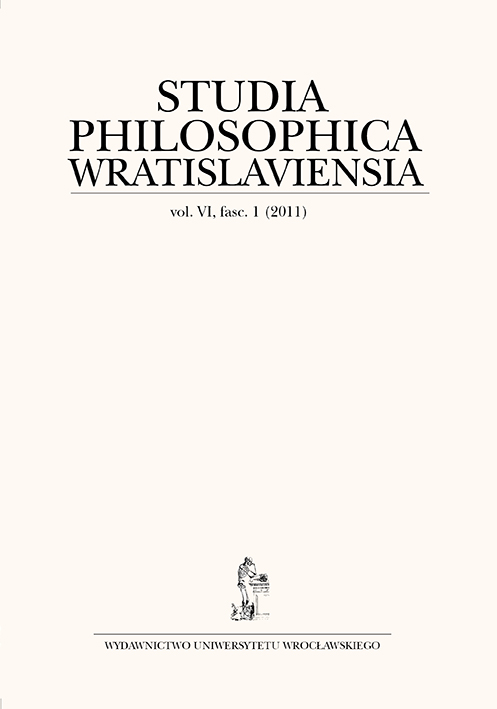

Artykuły

Analysis and the Simple Things in Wittgenstein’s Tractatus
The aim the paper is to present Wittgenstein’s idea of analysis of language and his arguments in favour of his thesis that simple things exist. Starting point of the paper is Wittgenstein’s claim that the idea of simple things results from the assumption that what is complex may be analyzed. He claims also that postulate of there being simple elements is a consequence of postulates according to which propositions do have definite meanings and that world has definite structure: if a proposition has no simple signs then it does not have specified sense, and if there were no simple objects then the world would not have a specified structure. What is lacking in Wittgenstein is a comprehensive reasoning in favour of the postulate of existence of simple things. The article gives a reconstruction of such reasoning. In order to accomplish this, following issues are presented and clarified: i Wittgenstein’s understanding of the analysis of language; ii the difference between Wittgenstein’s and Russell’s approach to language analysis; iii actual meaning of assertion that meaning of a proposition is definite and that world has definite structure; iv philosophical interpretation of quantifiers and symbols of complexes.